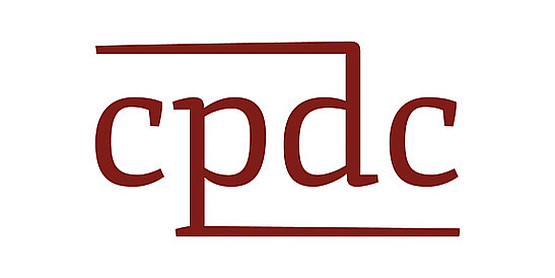Teaching by the CPDC

Winter Semester 2022
- KS Participation - Democracy - Education (Current challenges and perspectives for action for democracy) (Sarah Straub)
In this course we want to discuss central current challenges, related controversies and finally perspectives for action in democracy and work out their close relation to the reality of our lives. The units will take place in blocks. Among other things, current experiences of crises in democracy will be discussed, as exemplified in the context of COVID-19:
- Conspiracy narratives
- Racism (and other forms of group-based discrimination)
- inclusion/exclusion of certain groups in the context of social rights and citizenship
- climate crisis
- Participation in times of crisis and the role of civic society
considered from different perspectives. The overall concepts of democratic consciousness, public sphere and participation form the analytical framework for our arguments.
- KS Religious and Political Radicalisation: Civic Education as a Preventive Measure? (Wonisch, Kerstin; Zeba, Mattia)
Introduction to factors, dynamics, concepts, actors, networks and socio-cultural and historical backgrounds that can drive alienation, polarisation and ultimately radicalisation. Addressing deradicalisation strategies and programmes, as well as legal frameworks in this context. Familiarization with the four main aspects of civic education, namely values, virtues, identity and civic knowledge, which aim to reduce prejudice and conflict and promote empathy, democratic competence and a shared sense of belonging.
- VU Peace and Conflict Research (Lakitsch, Maximilian; Pirker, Jürgen)
The course introduces important basics of peace and conflict research. It deals with the various possibilities of responding to conflicts in their complexity on a theoretical level. In doing so, the aspect of resolving conflicts in a sustainable way is of fundamental relevance, whether it concerns local, national or international contexts. Furthermore, the course will discuss conflict dynamics in their legal, political, social or cultural entanglements. Correspondingly, various legal, political or socio psychological paradigms of conflict management will be presented.
Summer Semester 22/23
- VU Conflict Dynamics and Violence (Haller, Birgitt)
Austria has the relatively highest proportion of femicides in the EU. Research shows that the most dangerous place for women is often their own home. Thus, every fifth woman in Europe has been affected by intimate partner violence at least once in a lifetime. At the same time Austria has one of the most progressive victim protection laws and a nationwide network of victim protection structures. In this course we will deal with the meaning of violence against women, with personal/structural/symbolic violence, how it changes especially in the light of digital developments (keyword: Internet of Things, hate on the net), and how misogynous violence can be classified in a broader social context in connection with other power relations and reactionary developments. A special focus will be put on the (international) strengthening of antifeminism in recent years.
- SE Peace Processes in Fragile Contexts (Pospisil, Jan)
• Characteristics of peace processes in armed conflict
• Trends and dynamics in peace processes
• Power sharing mechanisms
• Inclusivity in peace processes
• Core elements of peace processes: DDR, SSR, Transitional Justice
• Informal peace actors and pragmatic approaches to mitigate armed violence
- VO The Law and Politics of International Intervention (Harzl, Benedikt)
- Public international law basics of state sovereignty and international (military) intervention
- The obligation to refrain from the use of force
- International institutions and frameworks of international engagement for security and peace
- Legal basics of peace-making, peace-keeping and peace-building
- Genesis of military operations to impose peace: from the paradigm of humanitarian intervention to responsibility to protect or protection of civilians
- VU The European Union as a Peace Actor (Lakitsch, Maximilian)
The European Union is a peace project. Its origins represent an attempt to overcome the persistent political and armed disputes between Germany and France. With progressing political integration of the EU and its increasing autonomy in external policy matters, the Union gained the ability to act as a peace actor on the international level. At the same time, there seems to be a demand for the EU to join other international powers in shaping an increasingly multilateral world alongside the USA, Russia and China. The course discusses the various options for the EU to act as a peace actor: whether by means of regional association within the framework of the European Neighborhood Policy with its neighbors in Eastern Europe as well as the Middle East and North Africa, through diplomatic strategies as a mediator or as an organization that establishes and coordinates peace missions.
- VO Introduction to Peacebuilding (Lakitsch, Maximilian)
Peacebuilding seeks to foster political, legal, social, economic or cultural foundations to prevent a society from lapsing or relapsing into armed violence. Despite the enthusiasm following the end of the Cold War, not only the latest examples of peace-oriented endeavors in South Sudan, Libya, or the Democratic Republic of Congo indicate severe flaws. Most armed conflicts that have been declared ended within in the last few years are considered highly likely to erupt again. Yet, at the same time, peacebuilding represents a highly self-critical and self-reflective undertaking that responds to its failures. That concerns academia as well as peace practice in (post-)conflict settings all the way to the level of the General Secretariat and the Security Council of the United Nations. The lecture seeks to give an overview of the position and function of peacebuilding within the framework of the international community – in its entanglements with international diplomacy and political processes as well as developments. On this foundation, the lecture will introduce and critically discuss various paradigms and concepts of peacebuilding.
Contact
Maximilian Lakitsch
MAUniversitätsstraße 15 Bauteil B/I
8010 Graz